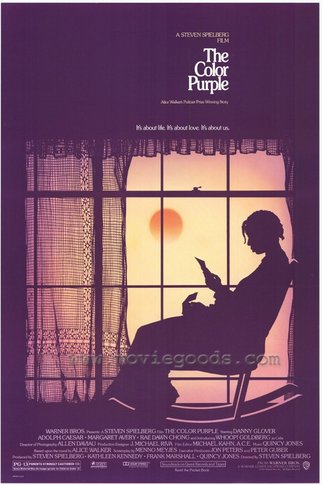My friend and I hesitantly slid to our seats, brushing shins and knocking knees with our work bags, two $15 cups of wine, and a $10 box of Sour Patch Kids to share. We shuffled into our place during the opening number. I didn’t mind that my bag was half spilling into my friend’s lap and her bag leaning to do the same on my side; I didn’t mind that my wine was dangerously close to tipping over from between my thighs; I didn’t mind the passive-aggressive looks from the White gentleman next to me, upset that he had witness me settling into myself to enjoy the show. I didn’t mind it at all because by then the essence of the South already took over the Bernard B. Jacobs Theatre. The brown bodies took up space like so many grandmothers, aunties, and sisters under less glamorous Broadway circumstances had done… It was then that I felt it; as if I was sitting at the feet of my great-great grandmother’s rocking chair as she began to tell the tale; surrounded by other young sisters, leaning anxiously on our knees waiting for the lessons, the parable, the wisdom from the past to come out and inspire us as we go into our future. In the seemingly mundane activities happening on the stage: the washing of clothes in a basin, picking up the plank of wood to complete the porch, sewing and stitching of the children’s clothes, it seemed to emit a familiar rhythm and connection. Every dip of clothing into the wash bucket was a physical hymn, every placing of wood to build the foundation of home was accompanied percussion or a verse dedicated to the scattered pieces of another life on another land, a foggy dream and nightmare from what they had to call home now: The South. I’ve seen this type of historical memory on my Southern grandmother’s face in the way she threw down in the kitchen, designed my church dresses when I was 10 with nothing but an exacto knife, fabric, and a retired sewing machine; and when she started her own beautician business right on Route 64 in Little Rock, Arkansas less than five minutes from her own home. I can only imagine my grandmother’s South or her mother’s South was not unlike what was setting the tone for The Color Purple on Broadway that night. My South was a commercial interruption to the traffic, palm trees, and beach boardwalks I was accustomed to in Los Angeles California, where I grew up. Going to my great-aunt’s funeral reminded me how the urban life that many Black people fled to was a far cry away from the Southern life. I was thrown back into the harmony of plates gaining weight, gold teeth, “amen,” “yes lawd,” and a type of unspoken synthesis of Black culture that felt less like a gun to your temple and more like a blanket for patients in shock. I was immediately at ease amongst the wasps crawling all over the screened-in porch on my grandmother’s family land; my ears adjusted to the Southern drawl as words dripped into each other on their way out; my legs all of a sudden didn’t mind the weeds and peeled snake skin frying in the afternoon sun. I knew this place, this pace, this life, it was almost as if I inherited it from my late Aunt Bernie through the stories she used to tell me about taking care of crop and family, while being hunted by the White man—and even her own men—while straightening my hair in her kitchen and cooking chitlins. Strangely enough, the stage, the presence, the cadence, felt like a childhood home.
0 Comments
|
AuthorTayllor Johnson currently resides in New York City where she has begun her journey into Poet. Passion. Period. In between those learning moments, she sometimes has just enough time to jot a few lines... Archives
March 2021
Categories
All
|
